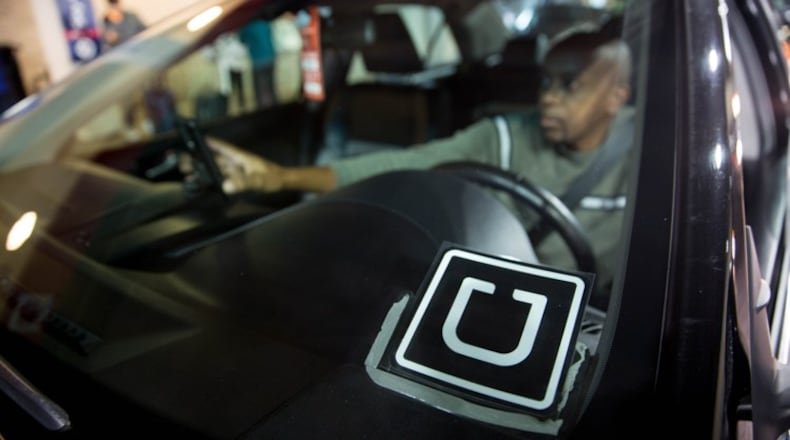Ride-hailing companies like Uber and Lyft could be on the hook for tens of millions of dollars as a tax dispute with the state heads to court.
The Georgia Department of Revenue has billed Uber $22.1 million for sales taxes and other charges it says the company owes. Though ride-hailing services do not pay sales taxes in Georgia, the department says they should under state law, just like their competitors in the taxi and limousine industries.
Uber disputes the department’s interpretation of the law and has appealed the bill to the Georgia Tax Tribunal, a special court that handles such disputes.
VIDEO: In other rideshare industry news
The stakes are high for ride-hailing companies, their customers and their competitors. Uber says sales tax rates average 7 percent across Georgia and are 8.9 percent in Atlanta – money that would be tacked on to each passenger’s fare.
“Sales tax does not apply to ride-sharing apps in Georgia, and a reversal would force consumers in the state to pay the highest tax in the country on ride-sharing,” said Uber spokeswoman Evangeline George.
The taxi industry says companies like Uber and Lyft should pay sales taxes, just like they do.
“Exemptions to that (sales tax) only create an unfair business advantage,” said John Boit, spokesman for the Taxicab, Limousine & Paratransit Association, a national trade group.
It’s unclear if the Department of Revenue is also attempting to collect sales taxes from Lyft. The department and Lyft declined to comment.
Whether ride-sharing companies are obligated to pay state and local taxes is a matter that has been long disputed.
In court documents, Uber says it is not a transportation company – it’s a technology company that provides an app that independent drivers use to connect with passengers. Uber says it provides no taxable service, and the Department of Revenue has overstepped its authority in attempting to collect sales taxes from the company.
Last February, the department demanded Uber pay $22.1 million in taxes, penalties and interest owed from July 2012 through June 2015.
A trial date for the company’s appeal has not been set. Ultimately, the dispute could end up in Fulton County Superior Court.
State lawmakers have sought to clarify the law, but efforts at compromise have failed.
In 2015, the General Assembly approved legislation governing ride-sharing companies, but it left the tax issue unresolved. In 2017, a proposal to levy a sales tax on each ride-hailing trip stalled. This year, a proposal to charge 50 cents a ride went nowhere.
Some lawmakers oppose efforts to tax companies like Uber and Lyft for fear that it could stifle innovation.
“We should be making transportation options more affordable, not less affordable,” said state Sen. Brandon Beach, R-Alpharetta, chairman of the Senate Transportation Committee. “I just don’t believe sales taxes apply to ride-sharing. We want to encourage people to ride-share and use these different modes (of transportation).”
Other lawmakers disagree. State Rep. Alan Powell, R-Hartwell, believes the companies owe sales taxes under existing law. He said not paying the taxes gives ride-sharing companies an unfair advantage over traditional taxi and limo firms.
“The taxicabs and limos, they’re having to do business a different way,” said Powell, chairman of the House Public Safety and Homeland Security Committee. “They have a different standard they have to operate to.”
It’s unclear whether lawmakers can broker a compromise before the courts weigh in.
Across the country, states have taken different approaches to taxing ride-hailing services. Most levy no tax. Georgia’s neighbors Alabama and South Carolina impose 1 percent ride fees.
“The Georgia Legislature has repeatedly rejected efforts to place a sales tax on ride-sharing apps, recognizing the impact it would have on residents and visitors who count on Uber for affordable rides,” Uber’s George said.
“We hope to continue our conversations with the Legislature about a reasonable fee structure that makes sense for riders and drivers, while making clear that Georgia is receptive to new technologies,” she said.
About the Author
Keep Reading
The Latest
Featured


